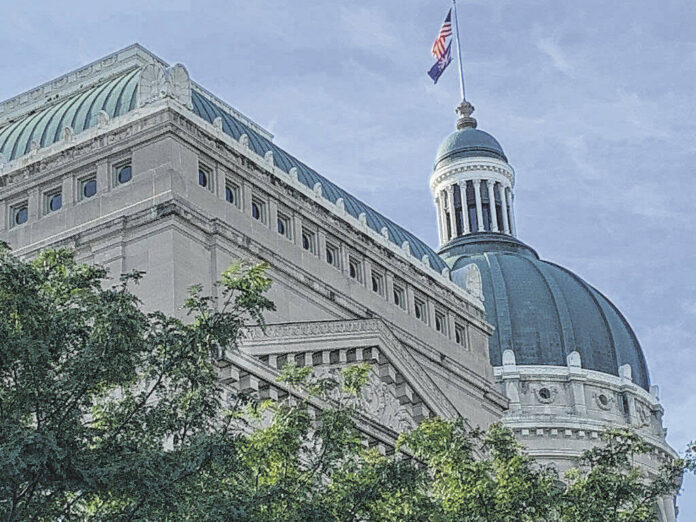President Joe Biden on Thursday announced executive actions that would pardon thousands of people with prior federal offenses of simple marijuana possession.
He will also direct U.S. Secretary of Health and Human Services Xavier Becerra and Attorney General Merrick Garland to review how marijuana is classified under federal law as a Schedule I drug, the Drug Enforcement Agency’s most dangerous classification that includes substances like heroin and LSD.
“Sending people to prison for possessing marijuana has upended too many lives and incarcerated people for conduct that many states no longer prohibit,” Biden said in a statement.
Biden plans to call on governors to follow suit with state offenses related to simple marijuana possession.
“Just as no one should be in a federal prison solely due to the possession of marijuana, no one should be in a local jail or state prison for that reason, either,” Biden will say.
Indiana’s path
Republican Gov. Eric Holcomb has repeatedly expressed reservations about signing a new cannabis law, saying earlier this year that until marijuana is federally lawful, “we’re getting ahead of ourselves.”
“I don’t question the potential positive impact it could have, but this needs to be done lawfully,” Holcomb said.
Indiana’s GOP lawmakers seem increasingly more open to at least loosening the state’s marijuana laws. The interim health committee is currently weighing the legalization of certain cannabinoids as a precursor to possibly legalizing the plant itself for recreational use.
The committee is tasked with studying the legalization of Delta-8, a cannabinoid, but much of the discussion so far has centered on legalization of marijuana medicinally or for recreational use, which three of Indiana’s neighboring states allow.
Republican State Senate President Pro Tempore Rodric Bray said he’s not sure what, if any, legislation will come from the committee but believes it’s an important issue to study.
“We in Indiana have been slower to go that direction than states that are surrounding us, as you all know, but we don’t live in a vacuum,” he said. “We have to figure out where we are and this is going to be an important conversation to have this summer for where Indiana moves.”
Democratic Senate Minority Leader Greg Taylor of Indianapolis has maintained he’s hopeful that the committee’s discussion will sway the Republican supermajority to seriously consider decriminalization, noting it could be a cost-saving move for the state.
Indiana Democrats immediately called on Gov. Eric Holcomb to follow suit with Biden.
“About 80% of Hoosiers support cannabis legalization in some form, and a vote for Democrats is a vote to legalize this win-win policy in Indiana,” said party spokesman Drew Anderson. “Decriminalizing simple possession of marijuana is a game changer, because now Hoosiers with prior convictions will have access to a better quality of life — including new job opportunities and a brighter future for their families.”
Federal moves
Biden’s move is intended to address the country’s “failed approach to marijuana,” a senior administration official said Thursday afternoon minutes before the announcement.
Civil rights organizations and researchers have shown that charges for marijuana possession disproportionately affect Black and brown communities. For example, the ACLU found that Black people were 3.7 times more likely to be charged with marijuana possession compared to white people.
Senior administration officials said that even if a person has not been charged or convicted of a marijuana possession, as of Thursday’s date, “the pardon does cover that conduct.”
The Department of Justice will create an administrative process for those who are pardoned to obtain a certificate of their pardon “so that they will have documentation that they can show to law enforcement, employers and others as needed,” a senior administration official said.
States began decriminalizing or legalizing recreational use of marijuana in 2012, when Colorado and Washington voters passed statewide ballot measures. Over the next decade, 17 more states followed suit. Those states have operated for years in conflict with federal laws that have kept the substance strictly illegal.
The U.S. House passed legislation earlier this year to legalize marijuana nationally, but the bill failed to gain traction in the Senate.
The House voted 220-204 to approve the measure, which would fix the split between federal law and states where recreational marijuana is legal. Three Republicans joined all but two Democrats in approving the measure.
This story is by Casey Smith, Ariana Figueroa, Jennifer Shutt and Jacob Fischler. It is republished from The Indiana Capital Chronicle, an independent, nonprofit news organization dedicated to giving Hoosiers a comprehensive look inside state government, policy and elections.





